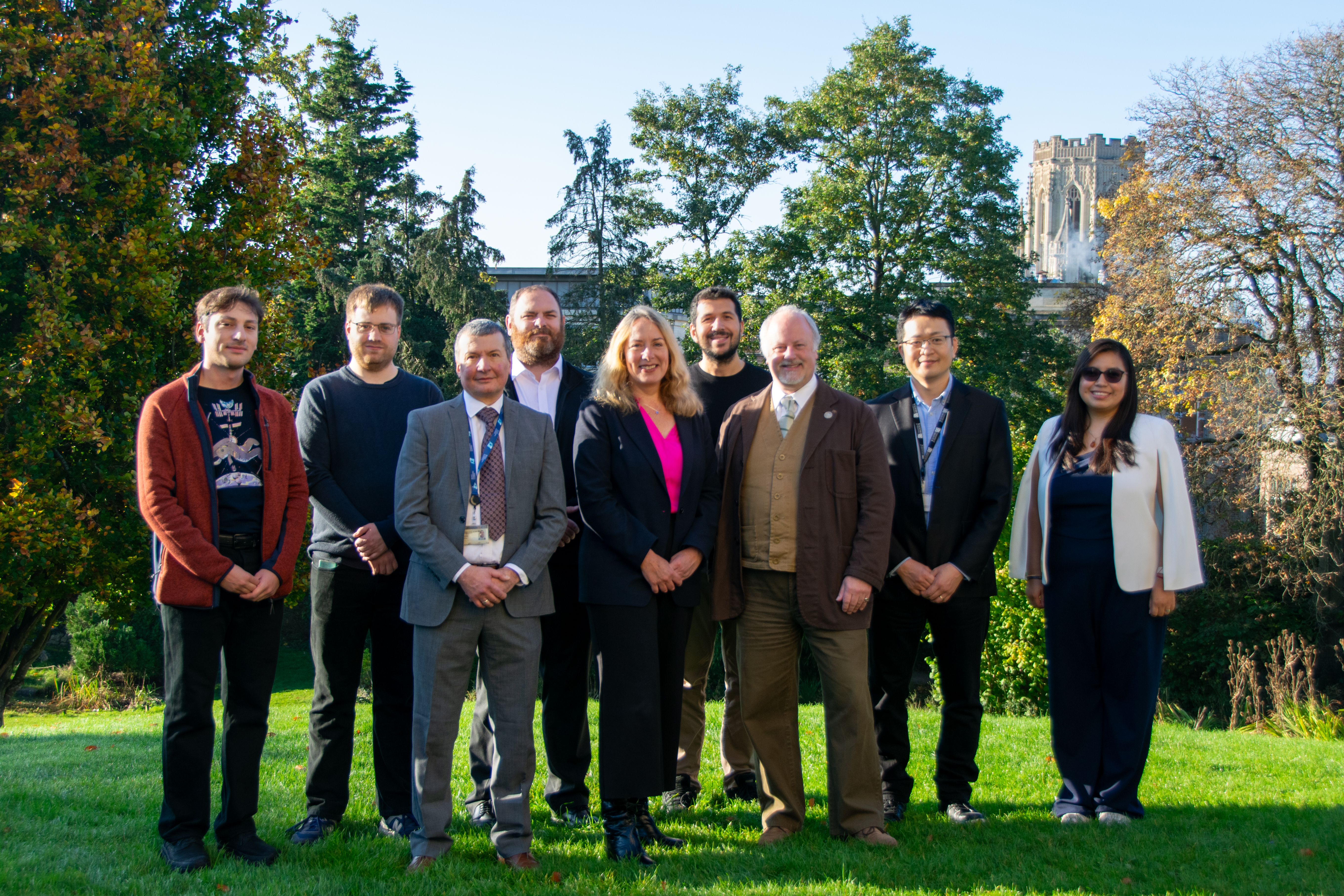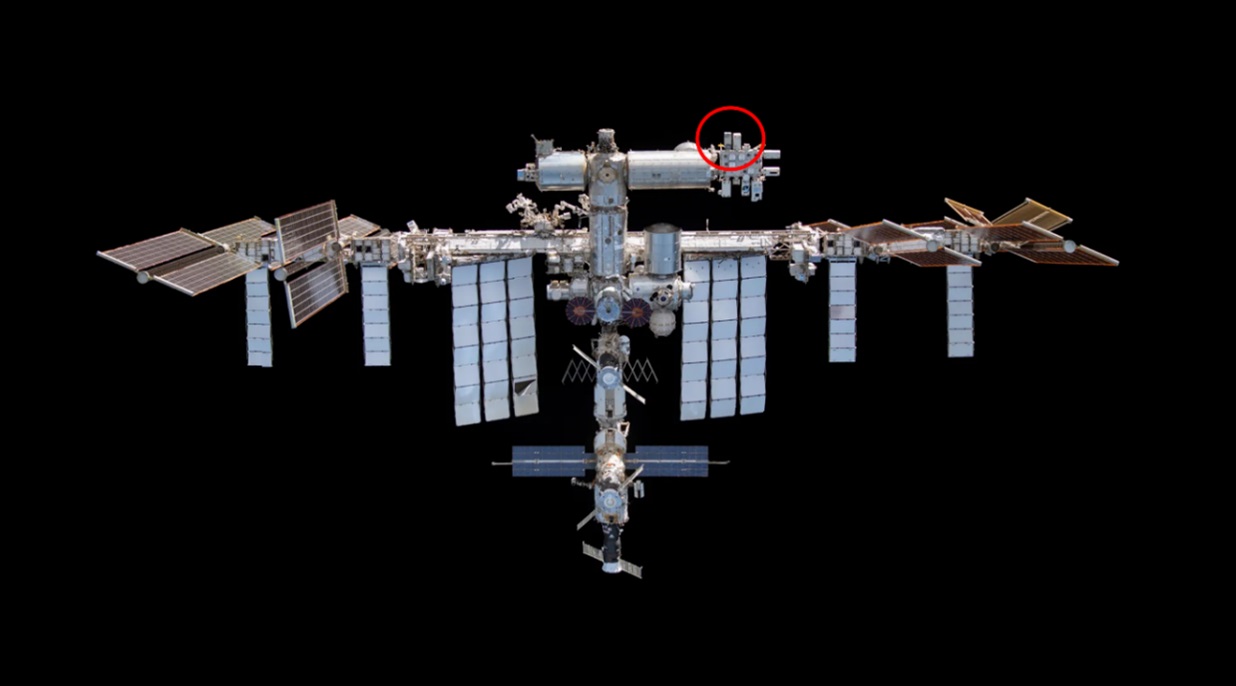Next-gen space materials head for ISS

Above: Some of the team behind the materials heading to the ISS.
Courtesy University of Bristol
Developed at the University of Bristol, these high-performance materials could be used to build future space stations, spacecraft for interplanetary travel or a new ISS.

Image courtesy University of Bristol / NASA
They will be placed on the Bartolomeo platform, located on the front of the ISS, where they will orbit Earth up to 9,000 times over the next 12 to 18 months at speeds of 17,000 mph.
The carbon fibre reinforced composites will need to survive temperatures between -150ºC and +120ºC, space debris travelling seven times faster than a bullet, severe electromagnetic radiation, high vacuum and atomic oxygen, which erodes even the toughest materials.
Prof Ian Hamerton, Professor of Polymers and Sustainable Composites in the University of Bristol’s world-leading Bristol Composites Institute, said: “Space is the most challenging environment for which to design new materials. You’re pitting your materials expertise, skills and ingenuity against extremes of temperature, mechanical stress, radiation, high speed impacts and more.
“Any one of those might be difficult, and, unfortunately, gaining access to repair them is not an easy option, so the materials we build must survive without maintenance.
“The opportunity to test our materials in the proving ground of space is priceless and will help our University of Bristol scientists on the ground improve fibre-reinforced materials for next-generation space missions.”
There are four laboratory-made polymers heading to the ISS, each of which has been reinforced with carbon fibres and two contain nanoparticles. All four are the result of University of Bristol research and one is patented.
If the materials cope in the harsh environment, they could be used to create longer-lasting space components, allowing spacecraft to travel further and spend more time in space.
Future communities on new planets will need protection against galactic cosmic radiation. Dr Ali Kandemir, Senior Research Associate at the University of Bristol, is one of several Bristol researchers, supported by the UK Space Agency (UKSA), examining the effects of simulated galactic cosmic radiation on the materials, in a European Space Agency (ESA) project.
Dr Kandemir said: “We want materials that are resilient in the space environment and, importantly, materials that can shield humans from that radiation.
“We also want to make these materials sustainable, so that when they reach the end of their life they can be recycled and used again for the same purpose.”
The launch of the Space X Dragon CRS-2 spacecraft this morning is the culmination of five years of work for Prof Hamerton and his team.
It has included the efforts of early career researchers, postgraduates and several Aerospace Engineering undergraduates at the University of Bristol, whose final year research projects have been linked to the space materials project.
The practical support of the University of Bristol-hosted National Composites Centre (NCC) was crucial to the scale up of the composite materials.
Prof Kate Robson Brown, Vice-President for Research, Innovation and Impact at University College Dublin and a collaborator on the project, said: “After nearly five years of research to develop novel composite materials for space applications it is very exciting to see our experiment launch to the International Space Station.
“I am proud to be part of this mission, and to be working with the multidisciplinary and multisector research team to deliver integrated real world and digital testing for innovative materials which will help to drive growth in the new space economy.
“This mission also demonstrates how space research funding creates career changing opportunities for early career researchers and PhD students in a sector of huge value to both Ireland and the UK.”
Funding to support the project was supplied by the ESA, the UKSA, Oxford Space Systems and others.
The University of Bristol’s MSc in Advanced Composites is based at the BCI.













